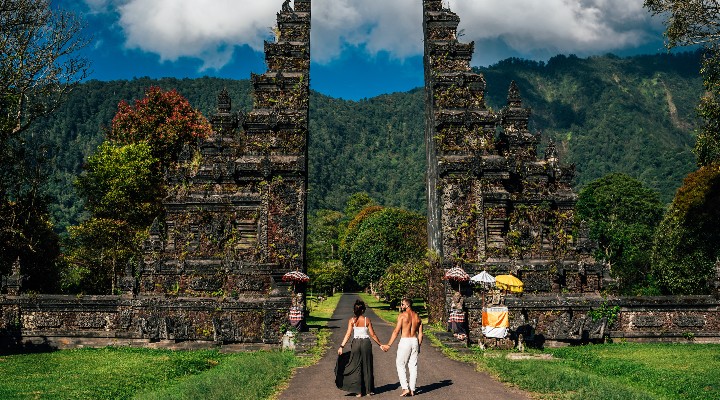Travel has been back on the cards for a while now, and consumers are cutting back on luxuries and home improvements in order to save up for a trip abroad. In turn, retailers are increasingly identifying the opportunity to capture the attention of consumers while they’re on the road, in the air, and across the sea. Data from the United Nations World Tourism Organisation (UNWTO) showed that 235 million tourists travelled internationally in the first three months of the year – more than doublin
ling the number from the same period in 2022.
While cost of living pressures are causing consumers to reconsider how they travel, the appetite for a holiday still appears to be there. According to data from the Australian Bureau of Statistics, there were over 600,000 short-term visitor arrivals and resident returns in March 2023 – an increase of over 400,000 for both categories from the year prior.
Further, a recent annual trend report by online travel agency Luxury Escapes, which surveyed 4,000 people, stated that over 90 per cent of Australians planned to travel domestically or internationally in the year ahead.
As part of the 2023 Australian Retail Outlook, luggage brand July told Inside Retail that it is not expecting cost-of-living pressures to significantly dampen its financial performance.
“All the people I’ve spoken to have made plans to travel in 2023 or the year after,” July’s co-founder Richard Li said.
Luxury travel retail is soaring
Amid this ongoing travel boom, the number of brands targeting the jet-set through collabs, new initiatives and store-openings seems to be ever-expanding.
According to the International Air Travel Association, the luxury segment of travel retail – brands seeking to transact with consumers who are in transit, or away from home – was valued at US$104 billion in 2021, and is expected to grow to $233.5 billion (about A$350 billion) by 2030.
This growth is facilitated by the resumption of travel from China following Covid-19 restrictions.
Retailers that have entered the travel retail space include boutique fashion brand Rebecca Vallance, which teamed up with Qantas to design limited-edition pyjamas and amenity kits for business class passengers.
It comes as the airline resumes its Sydney to New York route, with the Rebecca Vallance design incorporating the Qantas monogram, flight numbers QF3 and QF4 – representing the New York route – and its recent Avenue Astoria collection.
Department store Saks Fifth Avenue is expanding its luxury personal shopping and styling service, the Fifth Avenue Club, via private, standalone suites across the United States.
Meanwhile, luxury brand Coach recently launched Coach Airways in Malaysia – with the boutique store located inside a retired Boeing 747. The store incorporates Coach’s iconography, aeroplane seats and a cockpit.
Capitalising on demand
According to founder Rebecca Vallance, the eponymous brand has rebounded strongly over the last few years, with year-on-year growth increasing by 20 per cent following Covid-19 restrictions.
She told Inside Retail that the brand had been working closely with the airline prior to the roll out of Qantas Marketplace. The brand’s presence in the US was an important consideration in establishing the partnership.
Vallance explained that the brand has a global aesthetic, with 40 per cent of its sales coming from the US.
She added that it is also looking to expand further, with bricks-and-mortar stores across London and Soho set to be rolled out in 2024.
“Building an international presence is one way that Australian fashion retailers can capitalise on the demand for travel and tourism,” Vallance said.
Form of escapism
Retail Oasis strategist Emma Easton told Inside Retail that the retail industry has experienced positive and negative outcomes from the substantial growth of travel, and costs related to travel.
She observed that many customers were increasing their holiday spending as a means of escapism, while others were trading down and avoiding non-essential purchases to afford the luxury of travel.
“Retailers are leveraging the increasing consumer demand for travel by introducing travel-related products (such as travel beauty and luggage), having a presence in key tourist locations, and launching brand partnerships with travel companies,” Easton said.
“Luxury retailers are also enhancing consumer relationships by tapping into travel accommodation and events.”

